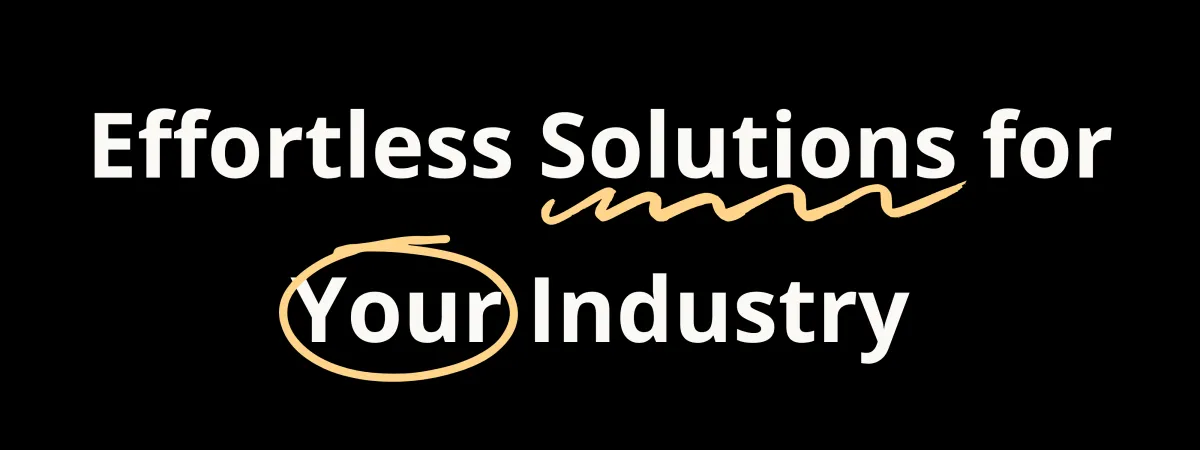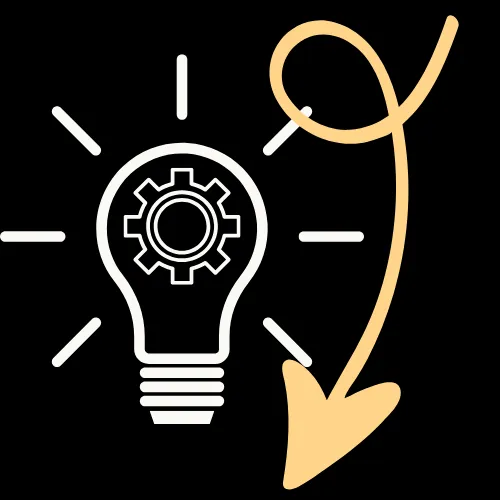
Streamline Studio

Wondering how automation can help your business? We've collated a catalogue of some of the most common automations we've delivered to date for you to browse to understand the use of automation within your business.
Just browse below...


Wondering how automation can help your business? We've collated a catalogue of some of the most common automations we've delivered to date for you to browse to understand the use of automation within your business.
Just browse below...

General Automations (Applicable Across Industries):
Customer Support:
Chatbots for FAQs and ticket routing
Use AI-powered chat tools (e.g., Intercom, Drift) to create bots that answer frequently asked questions or escalate complex queries to a human agent.
Automated email responses for inquiries
Set up triggers in your email platform to respond automatically to common inquiries, using tools like Gmail’s AI or a CRM system.
AI-driven live chat assistance
Implement machine learning models trained on your business data to provide real-time, context-aware chat support.
Marketing and Sales:
Personalized email campaigns and drip sequences
Leverage tools like Mailchimp or HubSpot to send emails triggered by user actions (e.g., abandoned carts or new sign-ups) with dynamic content tailored to the recipient.
Lead scoring and qualification
Use AI algorithms in your CRM to score leads based on their behavior, demographics, or engagement, enabling your sales team to prioritize high-quality prospects.
Social media post scheduling and content recommendations
Automate social posts with tools like Buffer or Hootsuite and incorporate AI to analyze the best posting times and suggest engaging content.
Administrative Tasks:
Meeting scheduling with automatic calendar updates
Use tools like Calendly or Microsoft Bookings to allow customers to self-schedule meetings. Sync calendars automatically to avoid conflicts.
Document generation and management
Automate contract creation or document templates with tools like PandaDoc or Google Docs APIs.
Task assignment and workflow tracking
Implement task management software (e.g., Asana, Monday.com) integrated with automation tools to assign and track tasks automatically.
Data Management:
Data entry and syncing across tools
Transfer data between apps without manual input, such as syncing lead details from forms to your CRM.
Automated reporting and analytics dashboards
Link data sources to reporting tools like Google Data Studio or Tableau for real-time dashboards.
Invoice creation and payment tracking
Set up invoicing software (e.g., QuickBooks) to generate and send invoices automatically upon order completion.
HR and Recruitment:
Resume screening and candidate ranking
AI-powered platforms like Workable or Lever analyze resumes to match qualifications with job requirements.
Employee onboarding workflows
Automate onboarding by sending welcome emails, assigning training materials, and setting up accounts in tools like BambooHR.
Timesheet tracking and payroll processing
Use payroll tools integrated with time-tracking software to calculate and distribute salaries automatically.
Industry-Specific Automations:
E-commerce:
Product recommendation engines based on customer behavior
Use AI tools like Shopify or Nosto to suggest products based on customer browsing and purchase behavior
Cart abandonment email triggers
Trigger emails through platforms like Klaviyo when customers leave items in their cart without completing the purchase.
Real-time inventory management and updates
Integrate stock levels with sales data to track inventory in real-time using tools like TradeGecko.
Automated order confirmations and shipping notifications
Automatically send confirmation and shipping updates via email or SMS using APIs like Twilio.
Healthcare:
Patient appointment scheduling and reminders
Use scheduling software like Zocdoc or Calendly, integrated with patient data for streamlined bookings.
Automated follow-ups for test results and prescriptions
Set up automated SMS or email reminders for appointments, prescription refills, or test results.
AI-powered symptom checkers for pre-diagnosis
Implement machine learning models trained on medical data for preliminary symptom assessment.
Billing and insurance claim processing
Automate claims submission and validation through specialized tools like SimplePractice.
Real Estate:
Lead management and automated follow-ups
Automatically capture leads from online inquiries into a CRM and trigger follow-up emails or calls.
Property matching and recommendation systems
Use AI to analyze property listings and customer preferences, sending matches automatically.
Automated reminders for viewings and contract renewals
Schedule automated notifications for upcoming property viewings.
AI-generated property valuations
Leverage platforms like Zillow or custom-built models to generate instant property valuations.
Legal Services:
Automated client intake and document collection
Use online forms to gather client information, automatically populating legal document templates.
Contract drafting and review using AI
AI tools like DocuSign Analyze can draft and review contracts based on predefined templates and legal standards.
Case deadline and task reminders
Automate notifications for case-related deadlines using calendaring tools.
Billing and time tracking automations
Link time tracking to billing systems for accurate and automated invoicing.
Finance and Accounting:
Expense tracking and reconciliation
Use AI to automatically categorize expenses from uploaded receipts or bank transactions.
Automated tax calculation and filing reminders
Automate calculations based on local tax laws using tools like QuickBooks or FreshBooks.
Fraud detection systems for transactions
Implement machine learning models to flag suspicious transactions in real-time.
Client billing and payment follow-ups
Send reminders for unpaid invoices via email or SMS automatically.
Hospitality:
Booking confirmation and follow-up messaging
Automatically send confirmation emails or texts upon booking completion.
Personalized guest experience recommendations
AI can suggest activities or upgrades based on guest preferences.
Inventory tracking for food and beverage
Monitor stock for food, beverages, and other consumables with real-time updates.
Staff scheduling and management workflows
Use scheduling software that accounts for availability, demand, and preferences.
Education:
Personalized learning plans for students
Use AI to analyze student performance and recommend tailored study materials.
Automated grading and feedback systems
Implement tools that assess and score assignments and quizzes automatically.
Class scheduling and attendance tracking
Automate the coordination of class times, room assignments, and instructor availability.
Course recommendation engines
Recommend additional courses or modules based on past student preferences or performance.
Construction and Trades:
Automated quote generation for client requests
Use AI to generate accurate quotes based on project details entered by clients.
Job scheduling and resource allocation
Assign jobs to contractors based on availability and location.
Real-time project progress tracking
Automate updates to clients on project status with photos or reports.
Client communication and follow-up automations
Set up automated follow-ups after project completion to gather feedback or offer additional services.
Nonprofits:
Donor outreach and fundraising campaign automations
Automate personalized thank-you emails and donation receipts.
Volunteer scheduling and management
Use tools to schedule volunteers and track their hours.
Grant application tracking
Set reminders for grant deadlines and automate progress reports.
Event registration and follow-up workflows
Manage registrations and send updates automatically for fundraising events.
Retail:
Customer loyalty program management
Automate point tracking and reward notifications for loyalty program members.
Dynamic pricing based on demand and inventory
Adjust pricing in real-time based on demand, inventory, and competitive data.
Automated in-store appointment scheduling
Allow customers to book personal shopping or consultation sessions online.
Personalized promotions based on purchase history
Use AI to send targeted offers based on customer purchase history.
General Automations (Applicable Across Industries):
Customer Support:
Chatbots for FAQs and ticket routing
Use AI-powered chat tools (e.g., Intercom, Drift) to create bots that answer frequently asked questions or escalate complex queries to a human agent.
Automated email responses for inquiries
Set up triggers in your email platform to respond automatically to common inquiries, using tools like Gmail’s AI or a CRM system.
AI-driven live chat assistance
Implement machine learning models trained on your business data to provide real-time, context-aware chat support.
Marketing and Sales:
Personalized email campaigns and drip sequences
Leverage tools like Mailchimp or HubSpot to send emails triggered by user actions (e.g., abandoned carts or new sign-ups) with dynamic content tailored to the recipient.
Lead scoring and qualification
Use AI algorithms in your CRM to score leads based on their behavior, demographics, or engagement, enabling your sales team to prioritize high-quality prospects.
Social media post scheduling and content recommendations
Automate social posts with tools like Buffer or Hootsuite and incorporate AI to analyze the best posting times and suggest engaging content.
Administrative Tasks:
Meeting scheduling with automatic calendar updates
Use tools like Calendly or Microsoft Bookings to allow customers to self-schedule meetings. Sync calendars automatically to avoid conflicts.
Document generation and management
Automate contract creation or document templates with tools like PandaDoc or Google Docs APIs.
Task assignment and workflow tracking
Implement task management software (e.g., Asana, Monday.com) integrated with automation tools to assign and track tasks automatically.
Data Management:
Data entry and syncing across tools
Transfer data between apps without manual input, such as syncing lead details from forms to your CRM.
Automated reporting and analytics dashboards
Link data sources to reporting tools like Google Data Studio or Tableau for real-time dashboards.
Invoice creation and payment tracking
Set up invoicing software (e.g., QuickBooks) to generate and send invoices automatically upon order completion.
HR and Recruitment:
Resume screening and candidate ranking
AI-powered platforms like Workable or Lever analyze resumes to match qualifications with job requirements.
Employee onboarding workflows
Automate onboarding by sending welcome emails, assigning training materials, and setting up accounts in tools like BambooHR.
Timesheet tracking and payroll
processing
Use payroll tools integrated with time-tracking software to calculate and distribute salaries automatically.
Industry-Specific Automations:
E-commerce:
Product recommendation engines based on customer behavior
Use AI tools like Shopify or Nosto to suggest products based on customer browsing and purchase behavior
Cart abandonment email triggers
Trigger emails through platforms like Klaviyo when customers leave items in their cart without completing the purchase.
Real-time inventory management and updates
Integrate stock levels with sales data to track inventory in real-time using tools like TradeGecko.
Automated order confirmations and shipping notifications
Automatically send confirmation and shipping updates via email or SMS using APIs like Twilio.
Healthcare:
Patient appointment scheduling and reminders
Use scheduling software like Zocdoc or Calendly, integrated with patient data for streamlined bookings.
Automated follow-ups for test results and prescriptions
Set up automated SMS or email reminders for appointments, prescription refills, or test results.
AI-powered symptom checkers for pre-diagnosis
Implement machine learning models trained on medical data for preliminary symptom assessment.
Billing and insurance claim processing
Automate claims submission and validation through specialized tools like SimplePractice.
Real Estate:
Lead management and automated follow-ups
Automatically capture leads from online inquiries into a CRM and trigger follow-up emails or calls.
Property matching and recommendation systems
Use AI to analyze property listings and customer preferences, sending matches automatically.
Automated reminders for viewings and contract renewals
Schedule automated notifications for upcoming property viewings.
AI-generated property valuations
Leverage platforms like Zillow or custom-built models to generate instant property valuations.
Legal Services:
Automated client intake and document collection
Use online forms to gather client information, automatically populating legal document templates.
Contract drafting and review using AI
AI tools like DocuSign Analyze can draft and review contracts based on predefined templates and legal standards.
Case deadline and task reminders
Automate notifications for case-related deadlines using calendaring tools.
Billing and time tracking automations
Link time tracking to billing systems for accurate and automated invoicing.
Finance and Accounting:
Expense tracking and reconciliation
Use AI to automatically categorize expenses from uploaded receipts or bank transactions.
Automated tax calculation and filing reminders
Automate calculations based on local tax laws using tools like QuickBooks or FreshBooks.
Fraud detection systems for transactions
Implement machine learning models to flag suspicious transactions in real-time.
Client billing and payment follow-ups
Send reminders for unpaid invoices via email or SMS automatically.
Hospitality:
Booking confirmation and follow-up messaging
Automatically send confirmation emails or texts upon booking completion.
Personalized guest experience recommendations
AI can suggest activities or upgrades based on guest preferences.
Inventory tracking for food and beverage
Monitor stock for food, beverages, and other consumables with real-time updates.
Staff scheduling and management workflows
Use scheduling software that accounts for availability, demand, and preferences.
Education:
Personalized learning plans for students
Use AI to analyze student performance and recommend tailored study materials.
Automated grading and feedback systems
Implement tools that assess and score assignments and quizzes automatically.
Class scheduling and attendance tracking
Automate the coordination of class times, room assignments, and instructor availability.
Course recommendation engines
Recommend additional courses or modules based on past student preferences or performance.
Construction and Trades:
Automated quote generation for client requests
Use AI to generate accurate quotes based on project details entered by clients.
Job scheduling and resource allocation
Assign jobs to contractors based on availability and location.
Real-time project progress tracking
Automate updates to clients on project status with photos or reports.
Client communication and follow-up automations
Set up automated follow-ups after project completion to gather feedback or offer additional services.
Nonprofits:
Donor outreach and fundraising campaign automations
Automate personalized thank-you emails and donation receipts.
Volunteer scheduling and management
Use tools to schedule volunteers and track their hours.
Grant application tracking
Set reminders for grant deadlines and automate progress reports.
Event registration and follow-up workflows
Manage registrations and send updates automatically for fundraising events.
Retail:
Customer loyalty program management
Automate point tracking and reward notifications for loyalty program members.
Dynamic pricing based on demand and inventory
Adjust pricing in real-time based on demand, inventory, and competitive data.
Automated in-store appointment scheduling
Allow customers to book personal shopping or consultation sessions online.
Personalized promotions based on purchase history
Use AI to send targeted offers based on customer purchase history.

Your Business. Fully Automated.
Imagine a day without endless admin tasks or repetitive busywork. With Streamline Studio, that day starts today.




Your Business. Fully Automated.
Imagine a day without endless admin tasks or repetitive busywork. With Streamline Studio, that day starts today.

